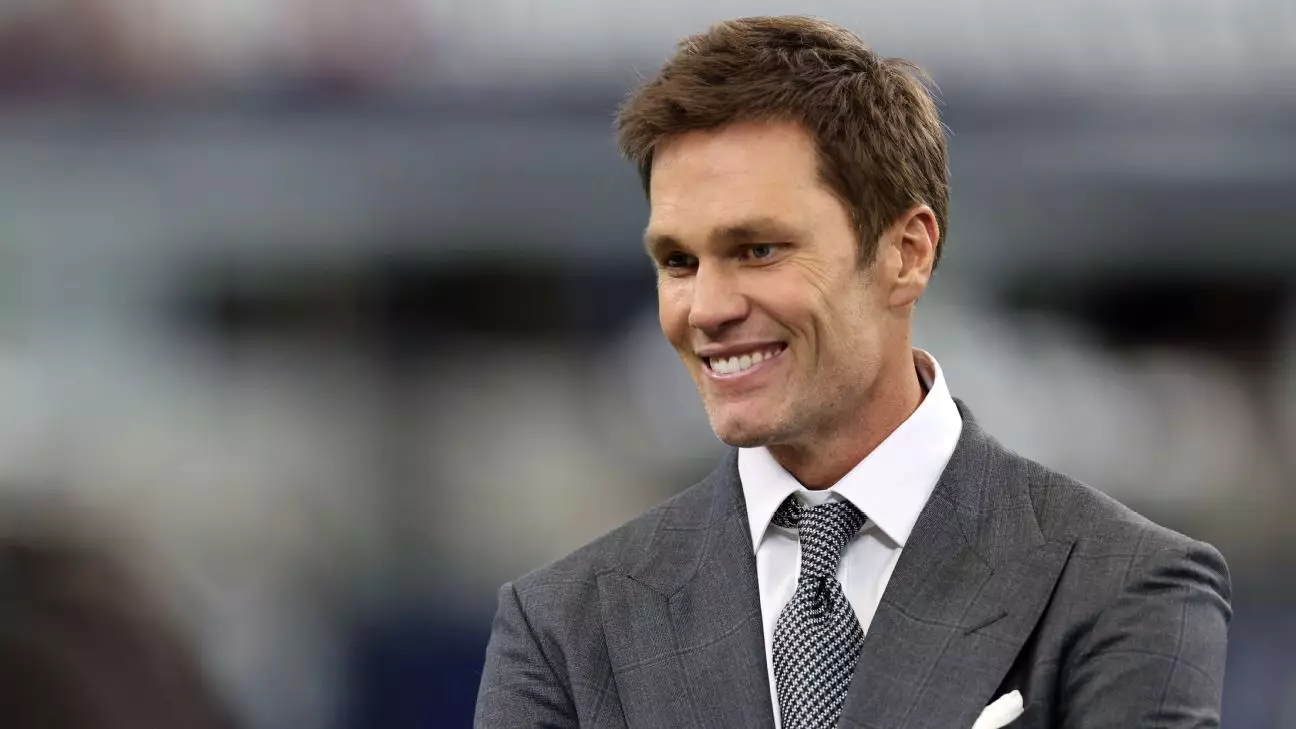In the high-stakes universe of professional sports, the lines between information sharing and strategic secrecy often blur, revealing uncomfortable truths about power dynamics and ethical boundaries. Ben Johnson’s confident dismissal of potential conflicts when engaging with Tom Brady exemplifies a broader tendency within the sports industry to downplay the implications of privileged access. The assumption that conversations with high-profile personalities like Brady pose no real threat neglects the subtle influence that information—no matter how innocuous it seems—can wield. When broadcasters and coaching staff justify such interactions as harmless, it reveals a troubling prioritization of narrative control over competitive integrity.
The sports world is built on code and unspoken rules, yet those codes are increasingly compromised as the boundaries between media, ownership, and strategic operations become indistinct. Johnson’s position, claiming immunity from repercussions, underscores a dangerous complacency rooted in relationship-building rather than transparency. This attitude may foster a false sense of security, but it dulls the critical awareness necessary to preserve fair competition. The reality that coaches often habitually share insights behind closed doors encourages a culture where confidentiality is more cosmetic than enforced, ultimately undermining the league’s credibility.
The Power Imbalance: Influence Peddling Behind the Scenes
Tom Brady’s dual role—analyst and minority owner—exemplifies a problematic convergence of influence. While league policies attempt to manage conflicts, the actual enforcement appears reactionary rather than preventative. Brady’s sideline presence and participation in meetings raise troubling questions about who really holds power. As a franchise owner, his access to information and intimate involvement in team strategies invite suspicions that his dual capacities might create an uneven playing field, deliberately or not.
This situation reflects a broader issue: ownership and media figures possess extraordinary leeway that is often shielded by rhetoric emphasizing “rules” and “policies.” In reality, these policies frequently serve to protect prominent personalities from scrutiny while enabling them to operate in the grey zones of influence. The NFL’s clarification—that Brady’s sideline activities are permitted under specific policies—does little to dispel concerns. It instead highlights how policy frameworks can be molded to suit well-connected individuals, marginalizing the interests of teams like the Bears whose staff and players must navigate these murky waters.
The Question of Integrity in Leadership and Fair Play
Ben Johnson’s dismissive attitude towards potential conflicts nonetheless raises vital questions about the morality of sports leadership in an era where transparency is paramount. The core of ethical competition is rooted in conducting oneself with integrity, respecting not only the letter of the rules but also their spirit. When coaches or executives dismiss concerns about information sharing, they inadvertently endorse a culture where the game’s integrity is secondary to strategic advantage.
The underlying issue here is power—who controls the narrative, who access privileged information, and how transparent these processes truly are. Johnson’s self-assuredness may be rooted in experience, but it also exposes a problematic complacency that risks eroding trust among fans, players, and stakeholders. Respecting the game means acknowledging that ethical boundaries matter—no matter how small or insubstantial they may seem in the moment. If leaders fail to uphold this standard, the entire sport risks devolving into a spectacle where influence and privilege outweigh merit and fairness.
The Cultural Consequences of Eroding Boundaries
As media and ownership figures continue to overlap and influence each other, the culture surrounding professional sports shifts dangerously toward oligarchy. The narrative that insiders can safely navigate the gray areas of influence fosters an environment of cynicism among fans and aspiring players alike. It sends a troubling message: success depends more on who you know than on genuine skill or commitment.
Furthermore, this erosion of boundaries damages the league’s reputation at a time when public trust in institutions is fragile. Transparency and ethical standards should be non-negotiable pillars within sports governance, not afterthoughts justified by convenience. When coaches, players, and media figures dismiss concerns with dismissive comments or legalistic clarifications, they reinforce a system where fairness is contingent upon perceptions rather than facts. This volatile mix threatens to dismantle the integrity that makes sport a compelling and respected institution.
In the complex landscape of modern sports, power and influence are no longer confined to the field. They seep into production meetings, sideline conversations, and ownership disputes—quietly shaping outcomes while the public remains largely unaware. It is imperative for those entrusted with the sport’s future to question not only what is allowed but what is right. The integrity of the game depends on a collective acknowledgment that transparency and fairness are not optional, but essential.


Leave a Reply